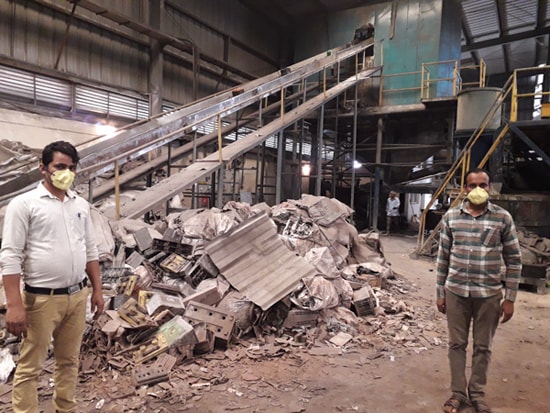While batteries may have different shapes and sizes, but they have two elements in common: the first is electrolyte and second is heavy metal like mercury, cadmium, nickel and lead. These metals, if not disposed properly are extremely harmful to our environment. Even upon destroying, these metals are released into the air causing contamination. Most of the batteries are generally put into the rubbish bins and are taken to the landfill sites. Various battery types contain hazardous chemicals like mercury, lead, zinc, lithium and cadmium which may leak to the ground causing soil and water pollution. Contaminated water and soil is harmful for the environment.

Apart from all these benefits, keeping heavy metals out of the landfill prevents the reaction of these metal to the rain water that seeps into the landfill forming a toxic soup, called leachate, contaminating the ground water. Talking about the global benefits of recycling, we must remember that we have only one planet and we must share and conserve the resources available to us. Mining of metals like lithium, nickel and cobalt for the production of batteries comes at a high cost both for humans and environment. Also, the extraction of metal like nickel leads to the generation dust containing highly toxic metals like copper, cobalt and chromium. With the increase in cost of raw materials, reusing materials from old batteries can help in minimising the cost of new batteries. The recycling of batteries helps minimise need for raw materials and conserve the planet.
Also, lithium is considered to be a highly flammable and when thrown away, it often ends up in landfill. Upon corrosion, they might produce ignition mixing with naturally produced methane gas in the landfill causing fire. Recycling of batteries is a necessary task not just to eliminate the environmental problems like these mentioned, but also to minimise the usage of resources. It helps to save the natural resources since plastic and metals from the used batteries can be reused to make new batteries and keep out of landfills and the air. There are many benefits associated with recycling beyond those that come in mind:
- Reduction in waste sent to landfills and turning them into new products
- Natural resource conservation, such as metals and minerals
- Reduces pollution since new raw material requirement decreases.
- Saves energy
- Re-use of materials to make new products.
- Reduces greenhouse gas emissions thus maintaining the balance in nature
- Provide a sustainable environment for our future generation.
- Helps in providing new job opportunities in the recycling and manufacturing industries
Recycling helps not just one individual but each and every one. It allows the reuse of those materials that would otherwise be discarded after being used. It helps to sustain our planet for the generations to come and carry us to a sustainable future. Battery recycling leads to the conservation of natural resources not only due to decreased mineral dependency but also because of limited consumption of fossil resources and reduced demand of nuclear energy demand.
